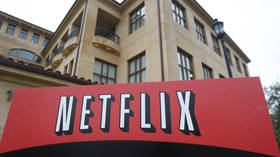Netflix suspends services in Russia


Video streaming giant Netflix has announced it is suspending its service in Russia. “Given the circumstances on the ground, we have decided to suspend our service” in the country, a spokesperson said in a statement on Sunday.
Netflix has around 1 million subscribers in Russia, and it is unclear what will happen to their existing accounts, but starting Monday, March 7, they will be unable to sign up for a new subscription or extend their existing one.
The move marks a further escalation of its announced pause earlier this week on future projects and acquisitions in Russia, including four original Russian shows, some of which had already begun filming.
Netflix had also announced it would refuse to carry 20 Russian state media channels it was required by law to air, insisting on Wednesday it had “no plans to add these channels to our service.” However, it had not previously carried the channels, which have only recently been mandated under a law that has not yet taken effect.
The cinema industry has followed tech and finance in its efforts to punish Russia for the Ukraine offensive. The Cannes Film Festival announced last week it would ban “official Russian delegations” from its 2022 event unless the conflict ceases, while film giants Disney, Warner Brothers, Paramount, and Sony have delayed releasing their current films into Russian theaters.
Netflix’s departure follows that of Apple, Samsung, and Microsoft, which have ceased or “temporarily suspended” selling their products in Russia, while Google suspended its advertising business in the country. Social media platforms like Facebook, Twitter, TikTok, YouTube, and Telegram have all placed restrictions on Russian content, with some shutting out Russian users entirely and others targeting state-run media.